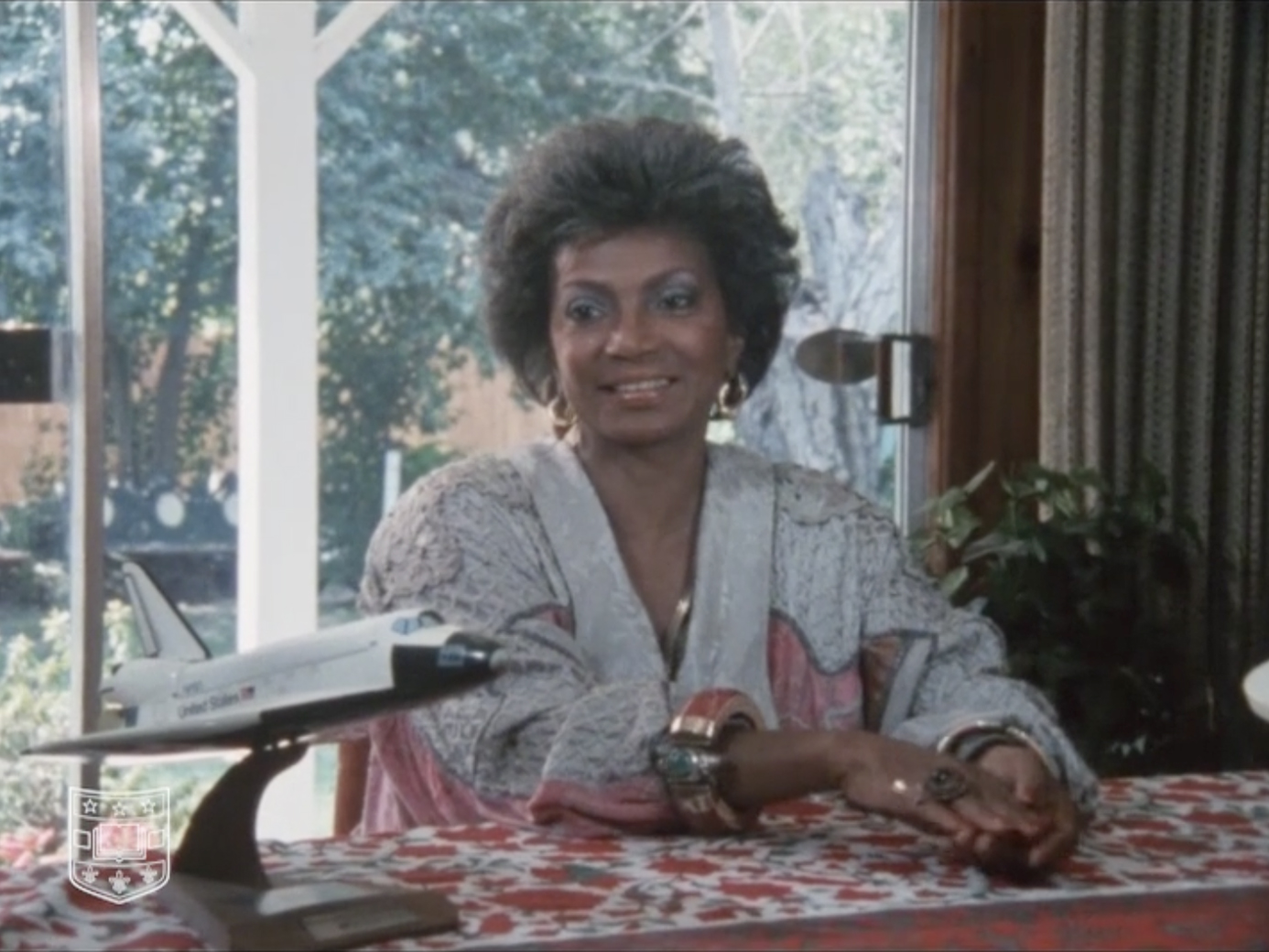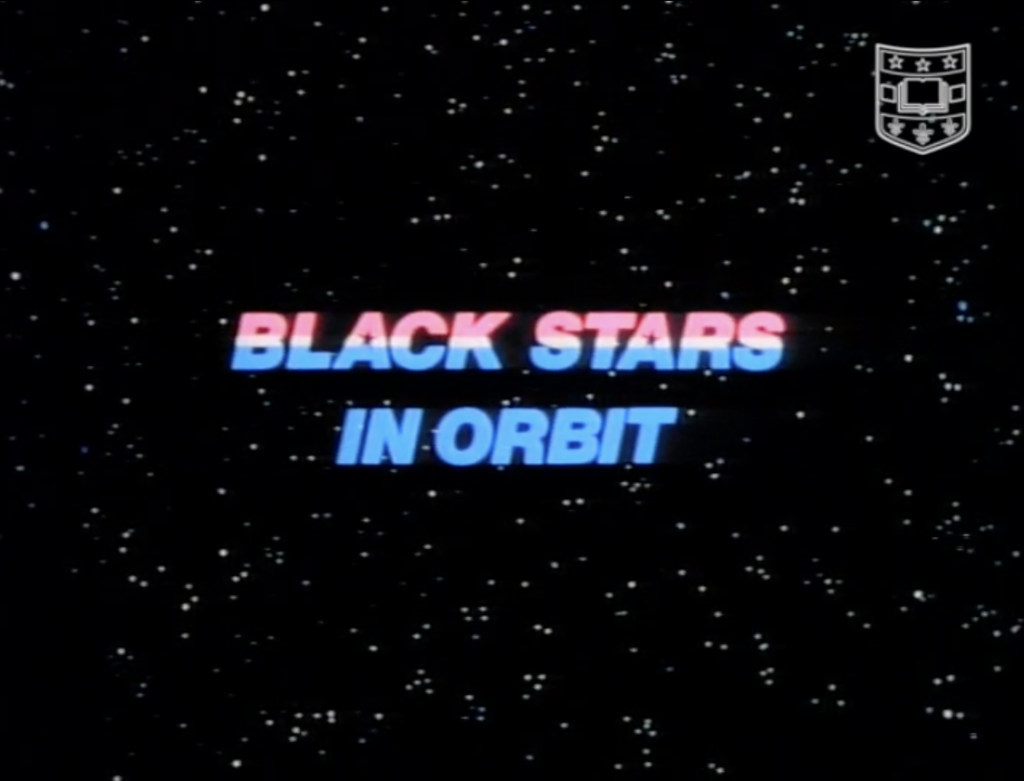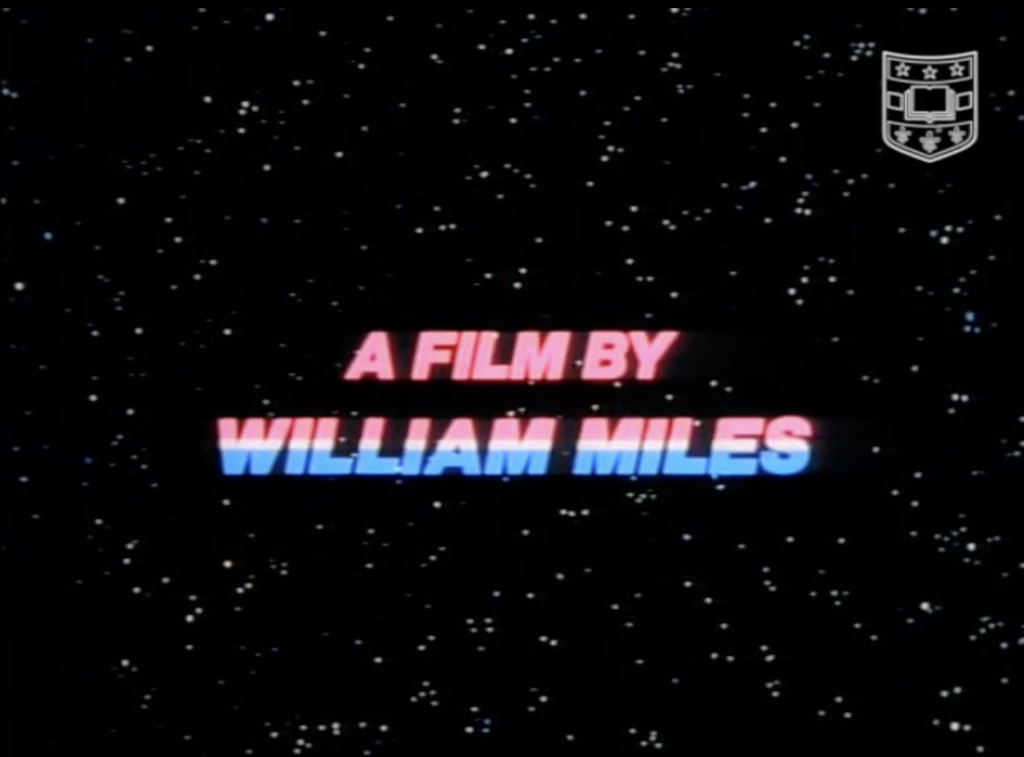
Rarely Seen Interview with Nichelle Nichols
The galaxy lost a star on Sunday, July 31st. Actor and performer Nichelle Nichols passed away at the age of 89. Nichols is best known for portraying Star Trek’s Lt. Nyota Uhura on the small and big screen from 1966 to 1991. As a Black woman in the cast of a network TV series at a moment most television shows were still segregated, her role as Uhura, a bridge officer in a futuristic society that was truly post-racial and gender equal, took on cultural importance in the show’s current day America that outstripped the comparatively limited minutes she received onscreen.
In the late 1970s, Nichols turned from a science fiction actor to science fact advocate when she became a spokesperson for NASA. In 1977, the space agency was trying to recruit more people of color and women to apply to its astronaut program. Up to then, all American astronauts who had actually gone into space had been white men. NASA hired Nichols to get the word out. Thousands of new applicants applied thanks to her media blitz. Three African Americans — Ronald McNair, Guion Bluford, and Fred Gregory — who were either contacted personally by Nichols or were inspired by seeing her talk about NASA, were accepted and eventually become our first Black astronauts. NASA expanded its planned single place for a woman student in the training program to six.


Thirteen years later, documentarian William Miles finally released his long-planned film Black Stars in Orbit. The hour-long program, first broadcast on PBS in February 1990, details the racist policies that kept Black pilots out of the space program up until the mid-1970s — America did you wrong, Edward Dwight — and celebrates the personal sacrifices and amazing achievements of the African American who did become astronauts including Bluford, the first African American in space in 1983, and Mae Jemison, who, six years later, was the first Black woman who went into orbit.
Nichols’s advocacy for making space a place for all Americans played a central role in Miles’s documentary. Here, for the first time, is the full-length fifty-two-minute interview Miles conducted with Nichelle Nichols on March 16, 1989:
Nichols is framed sitting between a model of the real-world space shuttle on her right and Star Trek’s Enterprise on her left. (It’s the refit Enterprise for you Trekkies out there. And yes, the warp nacelles are backward.) The blocking of her interview visualizes the main point she goes on to discuss — she wanted to make the utopian future of Star Trek a reality and helping diversify the space program was a real-world way she could help do so.
Some highlights of the interview include:
- how working on Star Trek changed her life goal from being a successful actress to working for racial and gender equity
- that humanity’s endeavors in space need to be peaceful and available to all (which is an important lesson in our current moment of a militarized space force and privatized space missions from tech companies with the questionable treatment of their workers)
- her story about a 1975 Star Trek convention in Chicago where she first got seriously interested in the work of NASA thanks to a lecture from one of the agency’s scientists, Von Pettkamer. She remembers being in awe of NASA’s work but being dismayed by its entirely white set of astronauts. “I wanted to be there [in space], not in fantasy, NOT three-hundred years from today but now.”
- her recounting how she watched the 1969 moon landing by herself drinking champagne and eating caviar in a big brass bed
- her story about convincing NASA they needed a well-respected spokesperson who had legitimacy with the Black community to increase recruits of color, such as Coretta Scott King or John Denver(!) and their response of “Well, what about Lt. Uhura.”
- her infectious laugh at 20:15
- that she created and produced live educational space musicals to teach children about science
- her personal sense of achievement in seeing McNair, Bluford, and Gregory become astronauts. “There’s no greater tribute.”
- her remembering, in audio only as the film had run out, of the first time she met astronaut Mae Jemison and NASA scientist Irene Long at a Star Trek convention in the late 1980s. Jemison told Nichols that she wanted to become a scientist after seeing Lt. Uhura on TV. These Black women were, Nichols states, her legacy, her Uhuras. She states that their conversation “was a moment of rare magic.”
So were you, Nichelle Nichols.
If you want to learn more about the life and art of Nichelle Nichols, with a much-expanded discussion of her work with NASA, and her influence on Black scientists and astronauts, you can watch Todd Thompson’s documentary about her, Woman in Motion. It’s streaming on the Peacock platform for free with ads, at least at the time of writing this post.
You can also watch William Miles’s interview with Jemison that he conducted for Black Stars in Orbit here:
